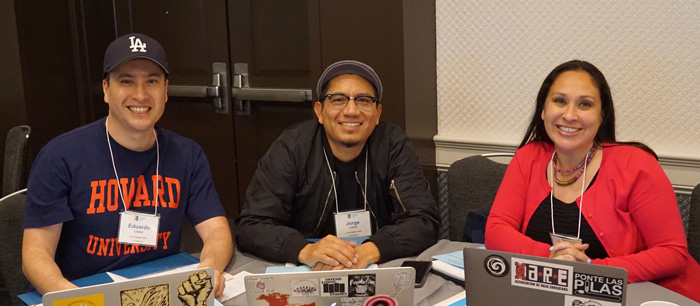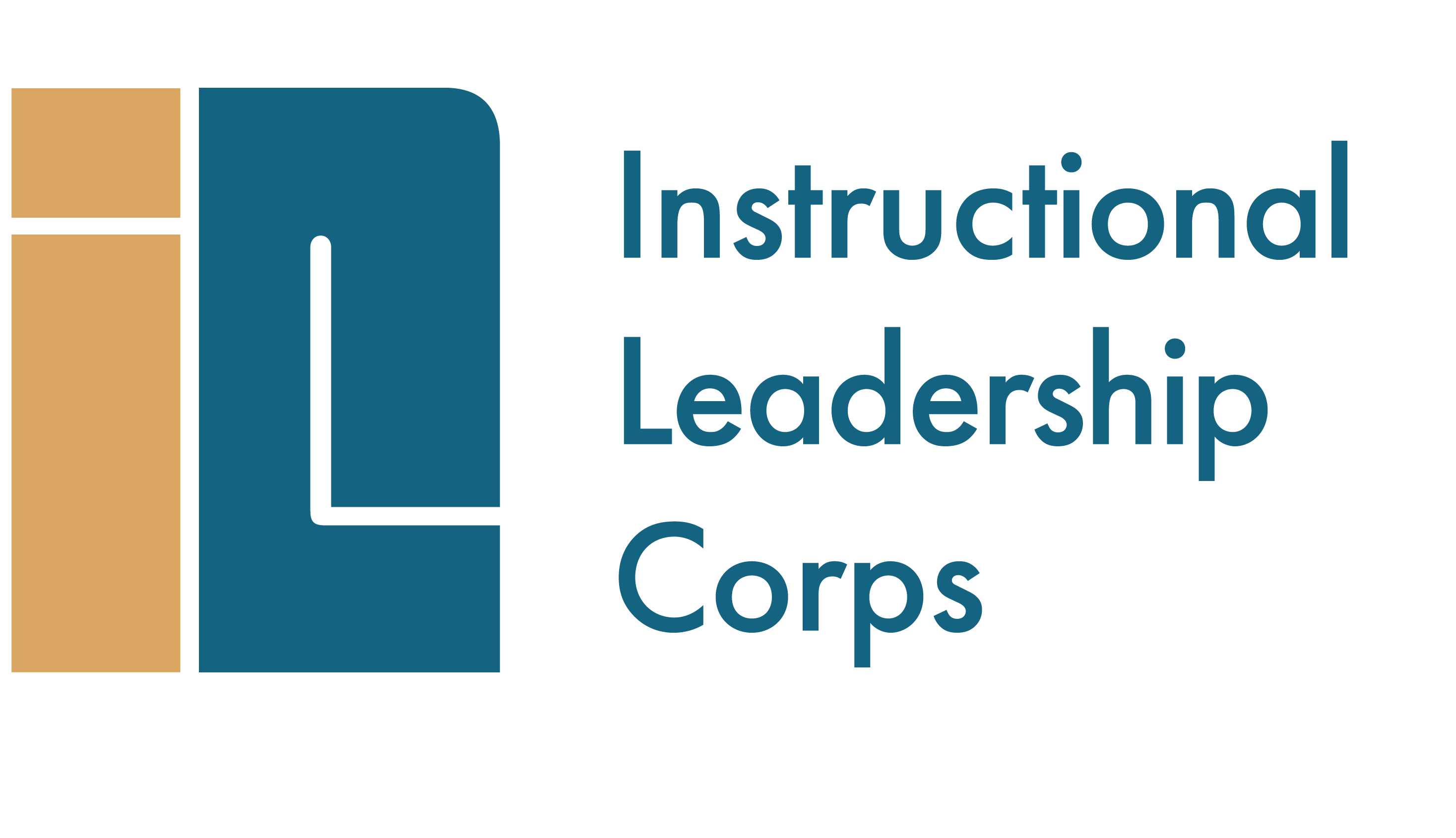
Los Angeles USD and Beyond: Ethnic Studies’ Sustainability Story

Highlighted ILC Principle: Establish institutional partnerships. Learn more about the ILC Project Principles.
This blog entry focuses on sharing work from the Los Angeles Unified School District (LAUSD) ILC Ethnic Studies team in Los Angeles County.
The ILC Ethnic Studies team in Los Angeles County has spent the past four years hosting workshops for teachers designed to prepare educators to teach ethnic studies courses and develop ethnic studies curriculum. The team is passionate about ethnic studies because they know that the discipline of ethnic studies saves lives and is transformative for all students, especially students of color. They are working hard to spread their passion and experienced ethnic studies instructional practices in Los Angeles, other parts of California, and beyond.
They have established a variety of institutional partnerships as a way to expand, deepen, and sustain their ILC work. For example, they have established partnerships with the CTA, both their local CTA chapter and members of CTA’s governing body, institutions of higher education, and several California school districts. By affiliating themselves with a social movement that promotes ethnic studies, the team has also established less conventional, yet still impactful, collaborations. Forging institutional partnerships is important to ILC work because these partnerships can help grow the conditions necessary for successful implementation of the California State Standards. (See ILC Handbook.)
For four years, this ILC team has hosted ethnic studies workshops for teachers. Workshops have occurred during school meetings, as part of university-organized professional learning programs, at conferences, and with other institutions. The ILC Ethnic Studies team has worked steadily and passionately to encourage educational institutions to include ethnic studies in their curriculum.
Ethnic Studies is the interdisciplinary study that centers Asian Americans and Pacific Islanders, Chicanx/Latinx, American Indians/Native Americans, and Black/African American peoples who have experienced, survived, and resisted settler colonialism, racism, hegemonic systems and structures of oppression. Using Ethnic Studies epistemology, content and pedagogy, Ethnic Studies aims to educate students to be socially, politically, and economically conscious of their personal connections to local and (trans)national histories. Students in these courses study topics through the intersectional lenses of race, ethnicity, culture, gender, sexuality, ability, language, immigrant status, and class. They analyze indigeneity, aspects of decolonization, white supremacy, oppression and privilege, and work towards empowering themselves as anti-racist leaders who engage in social justice activism. Reflection, Naming, Dialogue and Action drives the learning and supports the belief that each person has important narratives, stories, and voices to share. Students have the opportunity to cultivate intersectional solidarity with groups of people, locally and (trans)nationally, to foster active community responsiveness, social engagement, radical healing, and critical hope.
The team began as 3 teachers, who over time took on specialized roles in education, such as instructional coach, teacher on special assignment and intervention specialist. As these teachers developed, they also pursued relationships with institutional partners that could support and expand their ethnic studies professional development work. Each institutional partnership they developed provided uniquely valuable insight and feedback, which informed the team’s later work. The team spread awareness of ethnic studies, helped energize the movement across California, and aided the CTA’s advocacy for ethnic studies with the California Department of Education and State Board of Education.
Union Partnerships: Local and Statewide
The ILC team holds strong partnerships with the union, both locally and at the state level.
At a local level, the team received fiscal commitments for ethnic studies development through UTLA (United Teachers Los Angeles), which provided grants for professional development. Through community engagement, the LAUSD ILC team was able to hold multiple workshops, including at the Association of Raza Educators-ILC 2 Day Professional Learning Experience and team member Guadalupe Cardona’s “Culturally Responsive Teaching” CTA IPD Webinar. Teachers and community members were inspired to bring many of the learnings to their own classrooms.

Additionally, at a statewide level, the ILC team leveraged their ILC work when they shared their presentation/workshop “Who Are You? Where Are You From? Where Are You Going? Ethnic Studies & Culturally Responsive Pedagogy, Big Picture & In Our Classrooms” with the CTA State Council Civil Rights and Education (CRE) committee in 2018. This presentation assisted in the committee’s subsequent unanimous vote in support of California’s current Ethnic Studies legislation authorizing grant funds for developing ethnic studies courses required for K–12 graduation (AB 2772). The ILC team also shared this presentation/workshop with the LAUSD Ethnic Studies Teacher Leadership Team and at a state-level ILC conference. These presentations were further developed into the Ethnic Studies & Culturally Relevant Pedagogy ILC Tool for Practice. A teacher participant in the workshop reported that they learned “recognizing and respecting students’ background can be helpful when teaching.” An overarching theme that emerged in the workshop feedback was the need to have Ethnic Studies in all schools and to consider the ways it can benefit all students.
Higher Education Partnerships

The ILC team also holds multiple partnerships with higher education institutions.
In their first year, the ILC team began collaborating with the Teacher Education Program (TEP) at UCLA. Through TEP, teachers can take courses on teaching Ethnic Studies and, upon completion, receive an ethnic studies certificate. ILC Ethnic Studies team member Eduardo Lopez, a graduate of UCLA TEP, connected the ILC team to TEP.

In the team’s third year, R. Tolteka Cuauhtin, another ILC Ethnic Studies team member and teacher, gave a guest lecture on “Literacy and Language: Critically Examining Curriculum for Teaching and Learning Through an Ethnic Studies Praxis” at San Diego State University for 16 public school teachers enrolled in Master’s degree programs. Tolteka conducted an interactive learning experience, which integrated teachings from a book he co-edited, Rethinking Ethnic Studies.

All three of his fellow ILC Ethnic Studies team members, Jorge Lopez, Eduardo Lopez, and Guadalupe Cardona, also co-wrote chapters in the book. It has been recognized as a recipient of the 2019 Foreword INDIES book of the year in the education category, and the ethnic studies framework in the book has been referenced nationally and has helped further their work with other institutions.
In the online synchronous workshop at San Diego State University for master’s degree candidates, Tolteka virtually introduced “identification stations where the teachers would kinesthetically move throughout the room, integrating dynamic pedagogy into their classroom.” Teachers reported learning through an “activity to use with my students to engage critically with census and identity” later put into praxis with their students, and that “race is a social construct and many people don’t have a clear sense of this construct”, also making a goal to learn more about their personal ethnography.
Now the team is working with several universities to mentor teachers and prepare them for the world of ethnic studies. At Cal State Northridge, they are working on pairing up mentors with preservice teachers to prepare them for Ethnic Studies, through the Ethnic Studies Education Pathways Project. Additionally, the team has been working with the UC Davis Transformative Justice in Education Center. With the Center’s co-directors Drs. Maisha and Dr. Tory Winn, the ILC Ethnic Studies team is developing three sets of workshops that embed transformative justice in the ethnic studies curriculum.
Partnerships with Other Districts
The ILC team works with other school districts to collaborate on ethnic studies development. Several ILC team members, in conjunction with their participating partner, the Association of Raza Educators Los Angeles, worked closely with K–12 educators of Santa Barbara Unified School District. The team assisted with the roll out and development of their new Ethnic Studies program at the high school level. They also assisted with professional learning and course development, as well as developing the Ethnic Studies Pedagogy and Principles. The district moved for the team to provide professional learning opportunities for the elementary educators in their district as well.
The team is planning to work with the Montebello Unified School District by developing curriculum with 3rd, 6th, and 9th graders, integrating ILC principles to collaborate and build out the spirit of ethnic studies. Another initiative is working with educators from many districts throughout the state of California to help build curricula for them. The team is contributing to a 6 chapter ethnic studies curriculum that will be publicly released, providing free resources about processes, guiding principles, content, and instructional strategies to ethnic studies educators in California, and beyond.

Social Movement: Collectively Working Towards a Goal
While we don’t think of social movements as institutions, they are organized efforts by a body of people who are working to achieve particular goals. In this way, partnering with a social movement can be another sort of strategic partnership that can help deepen and spread an ILC team’s work.
ILC team members helped coordinate and lead a grassroots Ethnic Studies movement, as never before, in the form of the Save CA Ethnic Studies Coalition. The Ethnic Studies movement has a legacy that spans fifty years of Ethnic Studies activism, and includes the founders and student strikers from 1968–9, through to today’s university and high school students. As a movement led by a collective of teachers, over 27,000 people and over 150 community-based organizations and institutions signed on in support of their advocacy to have an authentic ethnic studies curriculum at the California state level.
In their curriculum and ethnic studies initiatives over the years, the ILC Ethnic Studies team has also been able to connect with students, community members and educators to support organizing conferences such as the Eastside Stories Conference—a high school teacher-based collective organizing an annual conference that offers students an opportunity to to be at the forefront of creating social change within their community and where youth come together to share and strategize ways to improve the city of Los Angeles. Growing this web of interpersonal and inter-organizational connections is important for the sustainability of ethnic studies. For the ILC Ethnic Studies team, they are succeeding in influencing teaching and learning within and beyond classrooms through their community building and partnership work.
Future Partnerships

In 2021, the ILC ethnic studies team has plans to develop more institutional partnerships at both TK–12 and university levels. They are preparing for long-term sustainability, especially as LAUSD becomes the largest district in the nation to implement an ethnic studies curriculum, through this unanimously passed board resolution that ILC team members also helped bring to fruition.


